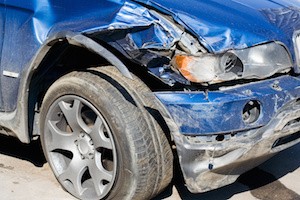 Each time you operate your vehicle, you run the risk of being involved in an auto accident. While backing out of your driveway, you failed to look cautiously and pulled right out into the path of another vehicle. The damages to your vehicle look significant and you THINK it is totaled, but do you know what happens when your car is considered a total loss?
Each time you operate your vehicle, you run the risk of being involved in an auto accident. While backing out of your driveway, you failed to look cautiously and pulled right out into the path of another vehicle. The damages to your vehicle look significant and you THINK it is totaled, but do you know what happens when your car is considered a total loss?
Factors to Consider When Determining if Your Car is a Total Loss
Your car looks like a total loss, but how do you really determine whether it is or not? You cannot tell just by looking at the cosmetic damages because once there is a substantial impact, there may be hidden damages that may not be revealed until repairs are underway. When your auto adjuster writes an estimate to repair your car, he/she will take into consideration any hidden damages that may be revealed at a later time.
When determining whether your car is totaled, you must establish what is called the ACV (actual cash value) of your car. The ACV is determined by the value of your car prior to the accident less any depreciation. *Typically depreciation of autos is considered to be about 15-25 percent each year for the first 5 years.
Establishing ACV can be done by consideration of several factors. Your claims adjuster will inspect your vehicle for its condition and damages (hidden damages will be factored) and then track the year, make and model through an industry-leading database that gives an accurate valuation of your car. Also, your adjuster may contact several car dealers in your area to get quotes on vehicles on their lot that are of the like, kind and quality of yours prior to the loss.
Another consideration in determining whether your vehicle is a total loss is establishing the “salvage value” of your car. Salvage value is the amount you would get for the car “AS IS” solely for the metal and any parts that could be salvaged.
Once the repair costs plus any anticipated hidden damages, ACV, and salvage value is determined, you will know whether your vehicle is a total loss. Typically, if the cost to repair your car is greater than the ACV of your car, it is deemed to be a total loss. Sometimes, if your car is just too unsafe to repair or damages too severe, state regulators may mandate it as a total.
Your Car is a Total Loss, So Now What?
Once your car has been rendered a total loss, you have two options to consider. The first option is to take the established ACV of your car less any applicable deductible. *The deductible would only apply to Collision/Comprehensive Coverage on your auto policy.
The other option is to keep the salvage (the damaged car “as is”) and take a settlement of ACV less any applicable deductible less the fair salvage value.
Whether your car is leased or financed will need to be established prior to the settlement. Contact your N.C. independent insurance agent to inquire further.
Be Prepared When an Accident Happens
If you are involved in an auto accident, you should immediately contact your N.C. independent insurance agent regarding the accident and damages to your vehicle. Then, your independent insurance agent can assist with the necessary steps to follow and review your afforded coverage (such as collision or comprehensive) and any deductibles under your current auto policy. It is important to know how to handle situations involving your vehicle when you have been involved in an auto accident. Our staff is prepared to assist you should an auto accident happen. Drive safely!

 Tom's Blog
Tom's Blog



